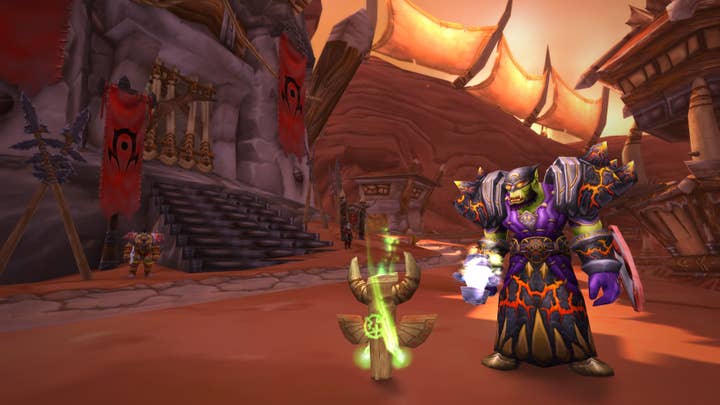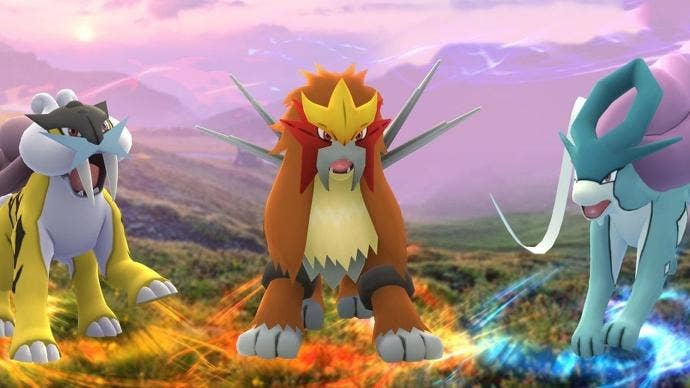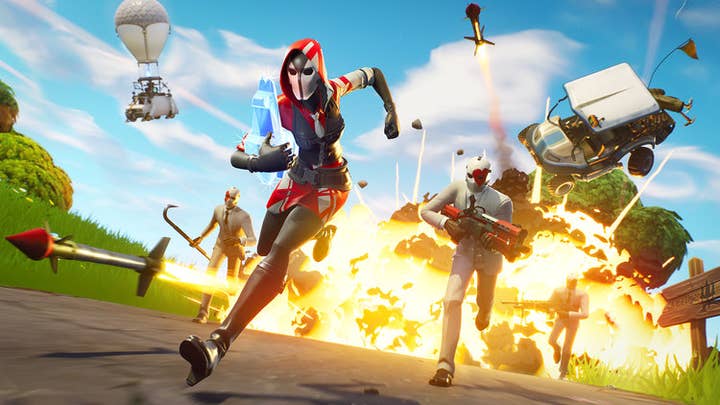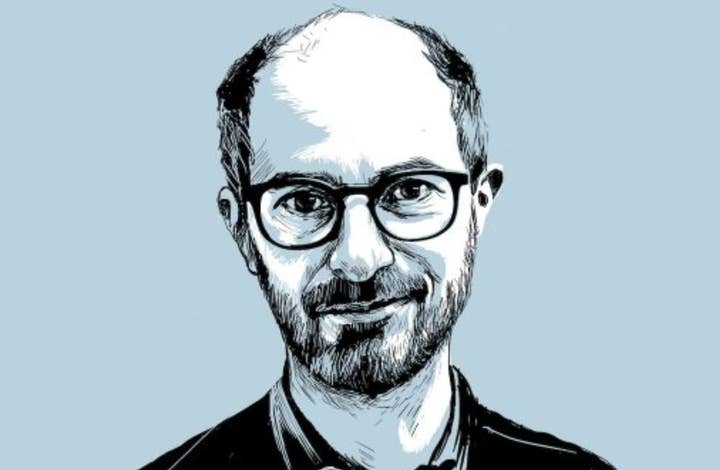Eurogamer at 20: Adapting to a changing industry
On the 20th anniversary of its first ever post, editor Oli Welsh reflects on the site's identity and legacy, and the challenges the games press faces in 2019
The speed and inevitability of change is a common idea in the pages of this website. The games industry has completely transformed over the last 20 years, and in ways that left many companies and creators behind.
Every one of those changes also had an impact on the critics and journalists who cover the industry. Working practices in the press have changed almost as much as its relationship to the industry itself, all while larger forces in the digital world have threatened the very existence of transparent, impartial journalism.
In that context, Eurogamer -- which published its first ever post 20 years ago today -- is a true survivor, and current editor-in-chief Oli Welsh has been a pivotal member of staff for arguably the most disruptive years of its existence.

Welsh started the same year that Castle Crashers and Braid launched on Xbox Live, kickstarting the reshaping of the world of video games by independent creators. It was the year the App Store launched, and therefore the birth of the most lucrative part of today's games market. And within two years, free-to-play would stop being a curious habit of companies in Asian markets, and start its inexorable rise in every territory and on every format.
Eurogamer has a lot planned for this most significant of weeks -- which you can read about here -- but we sat down with Welsh to discuss the key challenges in keeping pace with an industry that never stays still, what it takes to survive in web publishing in 2019, and the importance of Eurogamer's legacy in its plans for the future.
This is an edited transcript of that conversation. Enjoy.
The first reason I became aware of Eurogamer was that it was the only place on the internet I could find accurate UK release dates. That was its mission statement. It was there in the name; to be a website that wasn't made in America. It was almost more 'non-US Gamer' than it was Eurogamer. It was 'we're for the rest of the world.'
"A lot of people only play one game with an extremely long lifespan, and finding ways to cover it that are relevant for its audience and also a broader one is really difficult"
That was the first thing, but by the time I started meeting people like [former Eurogamer team members] Ellie [Gibson] and Tom Bramwell on press trips, and started thinking it was quite a cool operation that I'd be interested in joining, it was making a name for itself from just having really strong writing. I wrote mostly for Edge at the time, and there weren't that many options to find Edge-quality criticism and games writing on the internet. Eurogamer had that, but it also had something that Edge didn't, which was strong personalities in the writers.
Another thing it had that was quite unique -- though you could argue it was shared with computerandvideogames.com website at the time -- was quite a strong journalistic, reporting slant; news, fairly tough-talking interviews, and looking out for the consumer.
The news approach was different. That's certainly how a lot of websites were setting themselves apart from the magazines of the day. It was more dynamic and immediate by virtue of not being bound by a monthly or even weekly publication date.
But I also think most websites felt a little unbound by the close relationships that existed between publishers and magazines back then. I'm not condemning that model -- and a lot of really great journalism was done within that model -- but it was different on the internet. I noticed it as soon as I moved over.
That's right.
[Laughs] Yeah. We built a whole sub-section of the site. It had its own logo. The idea was it would be almost a spin-off [site].
World of Warcraft was the biggest game in the world. It was absolutely massive… I had a good relationship with Blizzard because, as a journalist, I'd been covering World of Warcraft a lot. I'd made a niche for myself as a freelancer covering MMOs, because nobody else had the time or the inclination. I decided to turn the fact that I'd wasted too much time playing WoW into a professional virtue.

But yeah, the industry gold rush on MMOs was just starting. We had no idea it was going to turn out that there would only be one… It quickly became apparent that not only was World of Warcraft going to dominate, and these huge launches that were going up against it were going to serially fail, but also that it was very hard -- and it remains difficult -- to plug coverage of these all-consuming online games into a generalist website like Eurogamer.
I would be writing extremely detailed patch notes stories that would only mean something to people who played the game… I was struggling to find an audience for them, because they would all be going to resources that were popping up all over the internet, that were specifically for WoW or Eve Online or whatever.
It was quite difficult to bridge that gap, and that's been the single biggest challenge to games journalism -- in terms of the nitty-gritty of games coverage; there have been some wider, existential issues as well -- over the last 12 years. Increasingly, a lot of people only play one game, and the games have extremely long lifespans, and finding ways to cover that game that's relevant for its audience and also a broader audience is really difficult.
"There were some incredibly high standards set over the life of the site that we strive to live up to. Although the site is very successful now, there are existential challenges to it"
A lot of it really does have to come from the staff. It has to come from personal passion. The single biggest game for Eurogamer over the last five years in terms of traffic has got to be Pokémon Go. An awful lot of that is search traffic to our guides -- we have extensive guides for that game -- but a sizeable proportion of it is news traffic as well, because we do report on it.
The reason we've been able to make that stick is we've got multiple people on the staff who play that game day in, day out. There was a concerted push [to cover it], but I don't think we'd have made it stick if we weren't coming to it from a place of passion. That's why Destiny worked. That's why Fortnite worked, becaue while it would surpise -- and probably appall -- some of our hardcore readers, we love Fortnite and play it every lunchtime.
You've got to come from a place of actually knowing the game, and that's why, for example, we've never made it stick with League of Legends -- we don't have anyone on staff who plays League of Legends. We think it's a great game, in theory, and there's certainly a lot to write about there, but we don't actually have that point of contact with it.
If it doesn't stick, it doesn't stick. You have to take your wins where you can get them. While we don't get traffic out of all of these big, monolithic games, we get traffic from a few of them. And we've had to do that by adapting the way we work.
We've had to do that by slightly different means, as well. When Eurogamer started, it was all about building a community around its homepage, a strong community that would come back and visit the site every day. We still have that -- we have pretty strong homepage traffic for a website in 2019 -- but we've had to reach out beyond that, and we had to do it mostly through Google. That's how we get all of the Fortnite players and all of the Pokémon players to come to us.

But you do end up with a bifurcation of your audience. And this is just web publishing in 2019, right? It's not even bifurcated; you've got your audience on the homepage, the audience on your social media channels (which are often different from each other), and the audience you bring in through Google, and they all come to you for slightly different reasons and with slightly different focuses and mindsets.
It's quite head-spinning and quite difficult to address all of those different audiences at once. Also, it's a real challenge to convert one into another.
You can look at the web stats, and they give you a small percentage that go on to look at another page, but that's a tiny insight into what's going on… We still don't really understand those relationships, but it's something that everyone in web publishing is working on.
"There was a concerted push [to cover Pokémon Go], but I don't think we'd have made it stick if we weren't coming to it from a place of passion. That's why Destiny and Fortnite worked"
But it's quite specific to games, because there isn't one amorphous games audience out there; there are audiences for specific video games. I have also had to remind myself that this, as well as being a major trend in gaming over the last decade or more, it is also how normal people play video games -- and always have, because video games are expensive. We forget because we're journalists, and we're often talking to a super specialist audience that buys lots of games, that the average person probably buys a couple of games a year.
Yeah, definitely. Mobile we still struggle with, as a general concept. It's just a very, very busy and confusing marketplace. Pokémon Go is different because it's Pokémon -- there's a brand there that links very directly to something our readers really care about passionately, and that we do as well.
With free-to-play, it depends on the game... and it depends on the way it's structured. Fortnite has a business model that makes sense to our readers, that they get, and that they don't find exploitative. It also happens to work well as a structure for content, because it's changing seasons that tie in to Epic's Battle Pass, and that means the game is refreshed -- there's new stuff to write about every few months, there's new search terms to go for. It works for us, too.

There has to be a compelling reason for us to get involved… because otherwise, [mobile] still feels quite Wild West to me. When we were having this trouble covering it ten years ago, I would have said that it's all going to calm down, it's going to normalise, it will resemble the rest of the industry more, and then we can get onboard. But we're still kind of struggling.
We have always struggled with it, and part of that is about our biases and the biases of our readers, as well. We are, at the end of the day, a site for people who play games on PC and consoles, really. And they, by and large, took one look at mobile gaming and said 'I don't like that.'
There's an extent to which we spent years saying 'But this game's cool, and this game's cool, and this game's cool.' Eventually we took the hint. They didn't really want to know about it. We'll still do something when there's a game we really want to highlight, but it's hard to do.
It's getting older over time, but not as quickly as our oldest readers are getting older, if you know what I mean. The age range is broader, but those older readers are sticking with us, and while I would love to bring younger readers in -- and games like Fortnite and Pokémon Go are a great way to do that -- it's clear to everyone that there's a generation of gamers now hitting 40 who are simply not going to stop playing, and thinking about, and buying, and reading about video games. We're going to continue to serve those people, because that's who we are, and that's our original readership.
"There's a generation of gamers now hitting 40 who are not going to stop playing and reading about games. We're going to continue to serve those people, because that's who we are, and that's our original readership"
We would love to attract more young readers, and we would certainly like to attract a more diverse readership as well. It's a slow process, but we definitely need to do more to diversify our own writing team to do that… We've been taking every opportunity we can to expand the voice of our site with freelance budget, with the internship that we do every year. That's an ongoing challenge.
The team isn't diverse enough, but at the same time it's a wonderfully talented team, and I don't want to start shoving people out of the door just to replace them. It's a difficult balance to strike.
Nope. No. Never doing it. With all due respect, we're just never doing it. We're a video games site.
There are two reasons for that. One is we're a video games site, and video games is enough. We have enough to write about. The other is -- and this is just a personal thing of mine -- it bugs me, I find it presumptuous, that a video games site would write about Marvel movies and not Tarantino or Almodovar movies… We wouldn't make those assumptions within video games about our readers. We assume they might be as interested in an indie game as a AAA game. At least, there are reasons why we would cover both, and we think both are interesting and deserving of coverage.
I don't like this idea that there's a Venn diagram of geek sub-culture. I prefer to assume that our readers interests outside of video games could be absolutely anything. Of course, it's statistically likely that those interests might include Marvel and Game of Thrones, but no -- I just don't like that. I'd rather we launched a new site to talk about pop culture, rather than put pop culture on Eurogamer.
This is a conversation we have a lot… I'd like to think so. There were some incredibly high standards set over the life of the site that we strive to live up to. Although the site is very successful now -- which I'm very grateful for -- there are existential, not threats to it, but challenges to it -- including the business model of online media -- that have made it hard to keep up that sense of the site really being its homepage and its comments, and that close interaction between the team and the readers. That has definitely been harder to maintain as we've had to put more focus on Google traffic.
That's a conversation we're having right now. What does Eurogamer mean to us, to this team, and what parts of that historical identity do we want to focus on and nurture? I think we've done okay, but it's a hard job -- both paying tribute to those things, and also making the site your own.
Tom Bramwell's Eurogamer wouldn't have been Tom Bramwell's Eurogamer if he'd been trying to make Kristan Reed's Eurogamer, which wouldn't have been that if he'd have been trying to make John Bye's Eurogamer. This is a mature publication now, and that comes with its own challenges. It has this baggage, and [the team is] talking about the site we want to make as well as the site it has been that has meant so much to so many people over so long.
We have to keep those two things in balance now. I think we've done okay, but I think we can do more, and it's something that everyone in the team is excited about working on in the coming years -- to make sure the site has an identity, and that identity doesn't get lost as we diversify across all these different platforms.
Disclosure: Eurogamer is a sister site of GamesIndustry.biz. Both are owned by Gamer Network.

